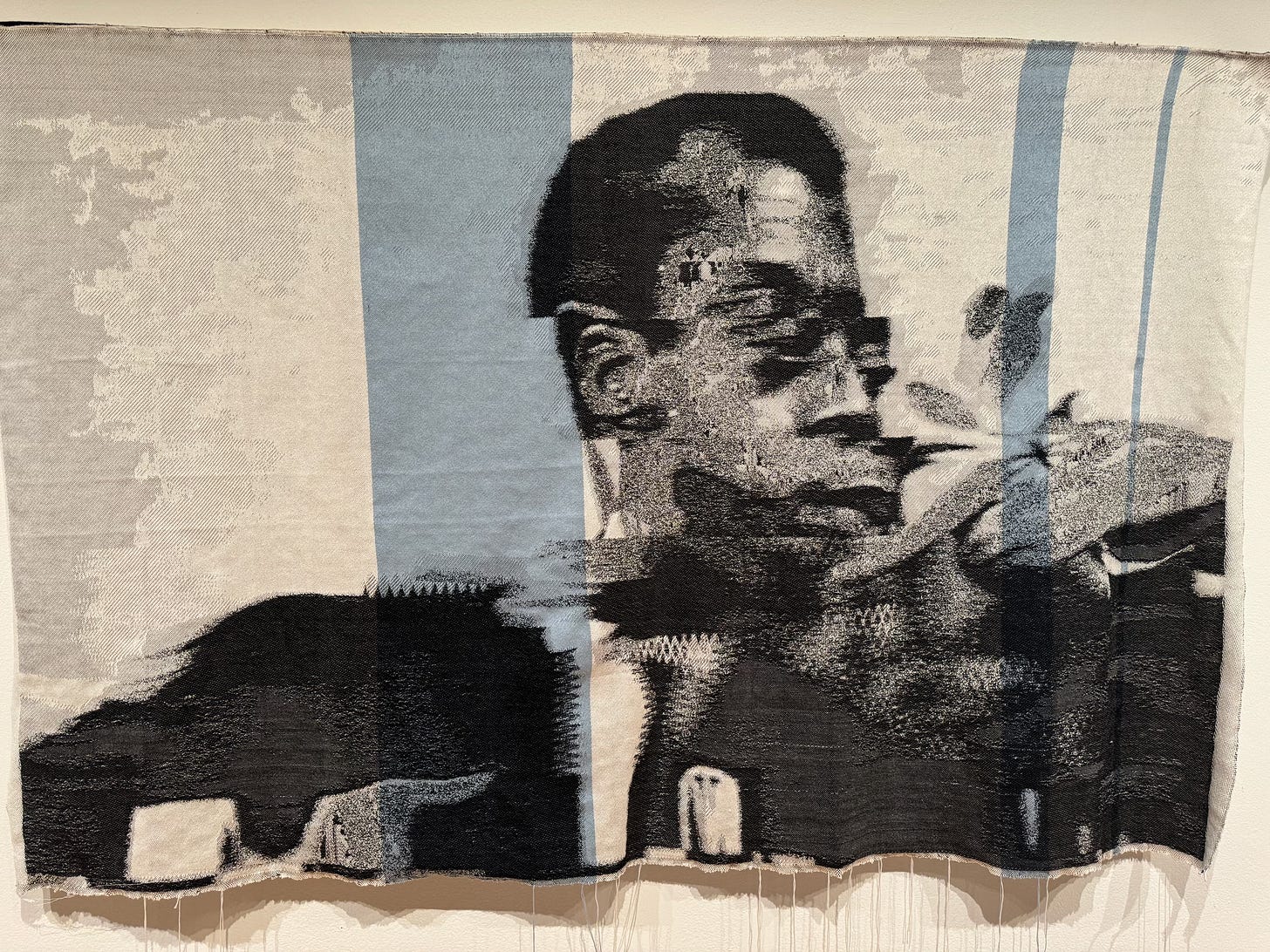Once, years ago, I went to Red Bank to see The Unbearable Lightness of Being with someone I thought I loved.
Was it love? I’m guessing it was, though when you suffer depressions like I do, love is something that never really seems to come together because you never seem to come together. Later when it was over and we lived on different continents, I read Kundera’s novel — maybe I was missing her — and I underlined that one famous line (me and half the palomos on the planet):
If a love is to be unforgettable, fortuities must immediately start fluttering down to it like birds to Francis of Assisi's shoulders.
Underlined not because I thought it axiomatic, but because I didn’t.
Didn’t know why it tugged me, but tug me it did.
Skip a few years. I am visiting Casa Azul in Cuidad Mexico (me and the other half of all the palomos on the planet). This doesn’t happen in 1999, when I lived in el DF, but on one of my later trips and the jacarandas are in bloom and I am with a local friend and she is talking about all of Frida’s lovers and how hard her final years were. Amidst all that falling violet Kundera’s line returns to me and that night I write it out again in my journal and later when I’m back in NYC I finally begin to understand my inquietud —
For someone like Kundera love is a given, a challenge yes, but still a given.
But for people of African descent like me — and all the other stigmatized persecuted majorities on this colonized planet — love has never been a given — love for people like us has, in fact, been historically impossibilized and remains one of our greatest struggles — whether it is to love ourselves or to love another.
Sure, unforgettable love would be cool, but even cooler would be love — period.
Because, as Fanon and Morrison and Gilmore and hooks and Moten and Maldonado-Torres and countless others have illuminated, in this society to be of African descent, to be indigenous, to be of color, to be other, is always to be positioned close to violence and death.
And, as a consequence, very far from love.
If the West taught us one love story it is that we are not love, and love is not us.
Of all the homes our septic hegemonies stole from us — histories cultures names safety futures — the loss of love is among the most devourous.
Therefore, if people like us are to find love — the real love that heals intergenerational curses and gives us some kind of tomorrow and makes us all our own best thing together1— the decolonial love of our ancestors’ dreams — we have to defy this fucked-up society at the stubborn indomitable2 level of our souls. Defy at the stubborn indomitable level of our souls what Arundhati Roy calls the Love Laws “that lay down who should be loved. And how. And how much.”
The Love Laws that demand people like us should never love or be loved.
The Love Laws that too many of us confuse with our own hearts.
Therefore, love for people like us must always begin with transgression, with rebellion— with something like revolution.
A decade later, after Red Bank and I met again, in Providence, both of us in love with other people, both of us happy for one another, I scribbled in my journal:
If love for people like us is to be possible, rebellion must immediately start fluttering down to it like —
Like that?
I have my own very personal take: if love for people like us is to be possible, rebellion must immediately start fluttering down to it like jacaranda petals on Frida Kahlo’s hair…or blossoms at Paul D’s feet.
I am sure you have your own love theorems.
I hope one day to hear them.
Italics are quotes from Morisson’s Beloved. Always Beloved.
The stubborn soul is from Pierre Vesperini, What To Do With the Past? https://newleftreview.org/issues/ii146/articles/pierre-vesperini-what-to-do-with-the-past





So deep and moving. And now I’ve got With a Rebel yell, she cried More, More, More looping in my head.
Damn this messed up colonized world and thank you for sharing your truth. Every time you do that, it decolonizes it a bit.
This one cut so deep. As a woman of color, and now as a woman of color who is stepping into the stigma called 'aging', I feel closer to violence and death than ever before. I walk everyday with the gnawing sense that love is a fight and that there is nothing fortuitous about it. And yet Kundera's book is a favorite of mine, which makes me wonder - after reading your letter - whether it is precisely because it feels like such a beautifully written piece of fantasy to me.